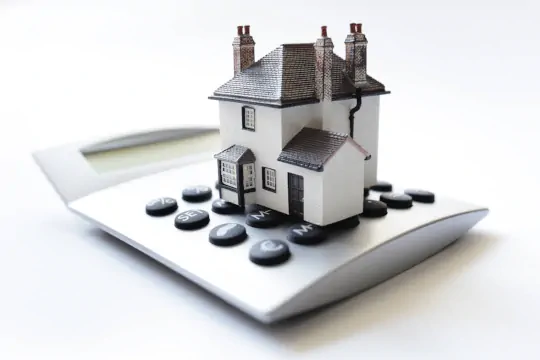ROSA KARP ~ FEBRUARY 2023

Click above to GET A FREE REPORT on what you need to know about your house, your home loan, and your taxes.
DIVORCE: YOUR HOUSE, YOUR LOAN, AND TAXES

Divorce is rarely easy and often means a lot of difficult decisions. One of the most important decisions is what to do about the house. Selling your home at the same time adds even more stress to the situation. Real estate is often a primary focus in divorce proceedings as you decide what to do about your shared home. In the midst of the heavy emotional and financial turmoil, what you need most is some non-emotional, straightforward, specific information and answers. Once you know how a divorce affects your home, your mortgage, and your taxes, critical decisions are easier. Neutral, third-party information can help you make logical, rather than emotional, decisions.
For many couples, a home is their greatest asset. It also may hold sentimental value to both sides. Questions of homeownership — be it the division of assets in a sale or who gets to keep the home itself — are complicated and can get testy. Probably the first decision is whether you want to continue living in the house. Will the familiar surroundings bring you comfort and emotional security, or unpleasant memories Do you want to minimize change by staying where you are, or selling your home and moving to a new place that offers a new start?
Only you can answer those questions, but there will almost certainly be some financial repercussions to your decision process. What can you afford? Can you manage the old house on your new budget? Is refinancing possible? Or is it better to sell and buy? How much house can you buy on your new budget?
❓️ To help you know what questions you should ask and how to arrive at the right answer for your specific situation, a FREE special report has been prepared by industry experts entitled "Divorce: What You Need to Know About Your House, Your Home Loan and Taxes". In many cases, due to financial, legal, or personal reasons, it makes the most sense to sell the house. But even that comes with questions. In this article, we’ll break down everything you need to know about selling a house during a divorce, house-selling options during a divorce, and more.

TAP HERE TO GET THE REPORT

Who gets the house in a divorce?
Most divorces involving a property dispute playout in one of three ways:
 One of the spouses buys out the other legal interest and keeps the home.
One of the spouses buys out the other legal interest and keeps the home.
 One spouse keeps used and occupancy of the home for a specified period, most often until the youngest child turns 18, at which point the home may be sold.
One spouse keeps used and occupancy of the home for a specified period, most often until the youngest child turns 18, at which point the home may be sold.
 The house is sold immediately and any equity is split up.
The house is sold immediately and any equity is split up.
Who gets the house in a divorce depends on each individual divorce, which makes it a tricky situation to navigate. Each of the above scenarios may play out in different ways depending on the cooperative or acrimonious nature of the divorce. That said, there are a few options to consider when you’re negotiating the future of a house.
1. Divide large assets
If you and your spouse have multiple shared large assets, like a primary home and a vacation home, you might just agree to divvy up the assets. That way, you each take ownership of assets worth about the same amount. It doesn’t have to be real estate. For instance, one person can keep the family home and the other gets the family’s art collection or a shared stock portfolio. Dividing large assets can be a quicker way to finalize a divorce since you won’t have to wait for a property sale or endure a long negotiation about who gets a larger share of a home. You’ll still have to negotiate the value of each large asset to land an equitable agreement, but you won’t have to deal with the stress of selling a home while going through a divorce.
2. Buy out the other party
If you or your partner doesn't want to sell, either of you can buy out the other person. The buyout may be for more or less than half of the market value depending on each party’s income, financial contributions to the property, and the home’s earning potential. If you’re not interested in a back-and-forth debate, you can agree to settle for half of the home’s market value. Bear in mind that the person doing the buying out must have access to enough cash that isn’t subject to the rest of the divorce proceedings, and be able to afford the mortgage on a single income. In some cases, however, you can roll a buyout into a larger home refinancing.
3. Co-own the home
In an amicable divorce, a couple can agree to a co-ownership plan. In this scenario, you’ll agree on how mortgage payments will be split when they’ll be paid each month, and how to distribute the proceeds of a sale should it happen down the line. This way, children can stay at the home and nobody has to worry about spending a huge amount to buy out the other person. In this scenario, you’re still financially tethered to your former spouse. Even if you’re divorced, late payments on a co-owned home will affect both peoples’ credit scores.
Also, in the event of a sale, a homeowner who doesn’t live in a home as a primary residence for at least two of the previous five years cannot claim the Home Sale Tax Exclusion. That means they’ll be subject to the full capital gains taxes on any appreciation in a sale, which could be a sticking point unless you agree on a sale timetable that gets both owners the tax exclusion.

WHY SELLING YOUR HOUSE MAY BE NECESSARY DURING A DIVORCE
You don’t have to sell your house during a divorce, but there are a number of reasons why selling may be the better choice.
Despite the stress and headaches of selling during a divorce, it may be the preferred option for a number of reasons.
1. Financial reasons
When you bought the house together, you may have had two incomes to cover the expenses. If either party can’t afford the mortgage, insurance, property taxes, and maintenance on a single income, selling the house may be the most viable option.
As mentioned before, the Home Sale Tax Exclusion says that if you are married and sell a home, you don’t have to pay capital gains taxes on up to $500,000 in profit. If you’re single, the capital gains tax exclusions drop to $250,000. To be eligible for the exclusion, you must have lived in your home as a primary residence for two of the last five years. If one person hasn’t or won’t live in the home, it may make more financial sense for both parties to sell the house before a divorce is finalized so you can write off a larger profit.
Couples can apply for this tax break whether they file a joint tax return or if they file separately, so you don’t have to still be married come tax time. There’s a major financial incentive to selling the home before getting divorced.
2. Legal reasons
In most cases, each person contributed to the purchase of the home, even if it wasn’t a 50/50 split. If you each want the house but can’t come to an agreement outside of court over who should get it, the courts will decide for you. Court battles rarely work out just like either party would like and can lead to further animosity between the couples, complicating the divorce. Most people want to avoid a legal battle, so agreeing on a plan to sell the house and split the proceeds is often a simpler solution. Once the family home is sold, the division of assets in the divorce should become more comfortable since you’re not trying to speculate on the future value of the house. Selling takes time and effort but agreeing to sell and how to split the money will avoid the pain and expense of a legal battle.
3. Liability reasons
If one person insists on keeping the house, it’s important to understand the liability risks and difficulties of being a single homeowner. One spouse may have enough income to take over the mortgage and all payments, but that also means eliminating the other spouse from liability. They’ll have to talk to the lender and refinance the house, qualifying on a single income for a house that was likely purchased with two incomes. The spouse who wants the house might have the liquid cash to buy out the other, but a lender might not agree that they’ll have the continuing income to keep up with all the increased payments. If the lender won’t back a single owner and the other spouse refuses to continue making payments on the house, you have to sell or risk foreclosure.
Homeownership comes with significant liability risks and financial requirements. If you can’t take on those risks alone, you could lose your home or destroy your credit.
HOW TO SELL A HOME DURING A DIVORCE
 Selling a home during a divorce is just like selling at any other time, except that you should be crystal clear on who gets what before the sale. As long as you’re not itching to get rid of the home, you should be able to get fair market value from a sale. Real estate appraisers and agents can help you determine what that value is, at which point both spouses (through their attorneys) should agree exactly on how they’ll divide up the money from the sale. If you're planning to sell your home, you can get started with a FREE ESTIMATE and we can even give you a guaranteed offer.
Selling a home during a divorce is just like selling at any other time, except that you should be crystal clear on who gets what before the sale. As long as you’re not itching to get rid of the home, you should be able to get fair market value from a sale. Real estate appraisers and agents can help you determine what that value is, at which point both spouses (through their attorneys) should agree exactly on how they’ll divide up the money from the sale. If you're planning to sell your home, you can get started with a FREE ESTIMATE and we can even give you a guaranteed offer.
Preparing to sell
Selling a home requires preparation even in the best of times. Before putting your house on the market, consider any maintenance the home needs and hire a real estate appraiser to formally assess the value of your house. If you decide to invest in some repairs or upgrades, you and your spouse must agree on how to split those expenses and if or how that investment will impact the profit split. Discuss this process with your divorce attorney so you can formalize any agreements before investing more money. Beyond financial investments, discuss other pertinent matters before listing. Will one spouse live in the home while it’s listed? Will they pay the entirety of the mortgage and other payments or will you split these costs? Who will prepare the house for showings and who, if either of you, will attend showings? When you’re about ready to sell, work with your spouse to find a good real estate agent to help sell your house. A good listing agent works for both of you towards a common goal and will be a good mediator in any conflict since their sole goal is to get the best price for your home.
Accepting an offer
While your list price depends on an appraisal and your real estate agent’s opinion, you might not get that price. Accepting an offer on the marital home is a huge decision in a divorce proceeding. Be ready to compromise. While the house is on the market, agree on a price both of you are willing to settle for. If you can’t agree, trust the opinion of your agent. If you want to be done with the sale fast, then you may have to accept a lower price.
When offers start coming in, keep an open dialogue with your spouse, agent, and divorce attorney. If you can’t agree on certain offers, stay open-minded and use the advice of your attorney and real estate agent. Try to avoid contention as much as possible and keep the process civil — it will make the rest of the process easier.
Dividing the profit
Dividing the profit from a sale is a matter for your attorneys. In some states, everything purchased or otherwise obtained during a marriage is considered equally owned by each spouse, regardless of the name on the deed. These are called community property states and your attorney will know if you’re in one and understand the few exceptions to these rules. Otherwise, the expenses and profits associated with the home sales may vary and depend on agreements struck between your divorce attorneys. If one spouse contributed more to the mortgage or financial upkeep of the house during the marriage, they may receive a larger portion of the sale. If one spouse contributed more to the home but is keeping other large assets, more of the profit may go to the other spouse. Sometimes, these disputes wind up in court and become a judge’s responsibility to divide the profits. It’s better if you can come to a mutual agreement through your attorneys because few people leave divorce court happy.

WANT TO KNOW MORE? CLICK HERE!